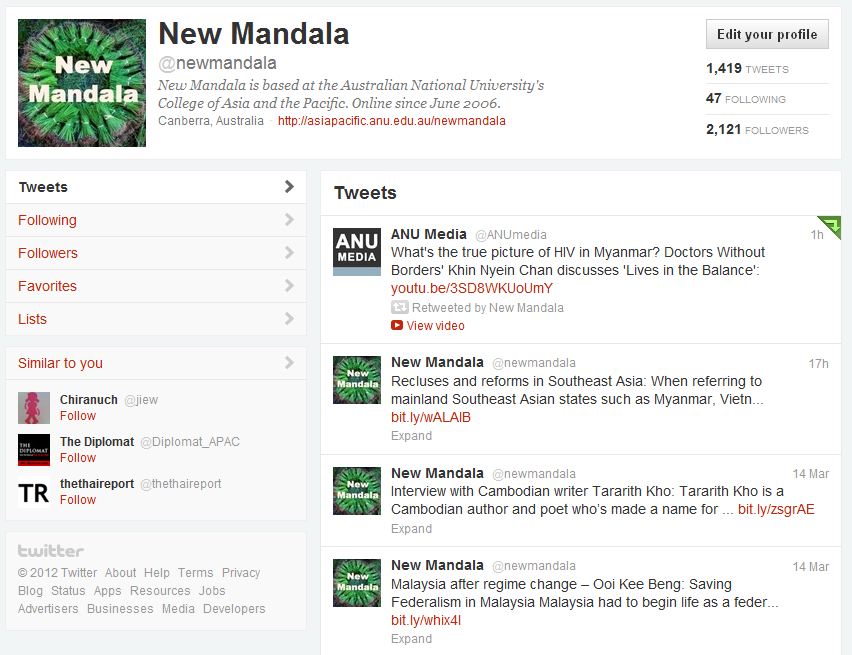Here at New Mandala we have not yet sought to tweet up a storm. These days every New Mandala post is automatically sent to our couple of thousand followers (@newmandala), and we also make occasional tweets on other topics. As a vehicle for sharing information in a crisis or at other times of furious activity Twitter is, of course, hard to beat. I think that is why so many governments find it so uniquely threatening.
Today the new home of regional political, social and economic commentary, the refreshed website of our Australian National University College of Asia and the Pacific, has published an analysis of Thailand’s effort to clampdown on Twitter.
As ANU PhD candidate Sarah Logan argues in a piece titled “Word cage: Thailand, Twitter and censorship”:
Thailand was the first state to publically endorse Twitter’s recently announced censorship policy. The policy essentially allows governments with a ‘valid and applicable legal order’ to ask Twitter to remove certain tweets because they violate local laws. Doing so would mean that while those tweets were still visible by users outside that country, users within it could not see them, thus defusing any domestic impact. Managing social media is an ongoing concern for many states, and fellow Twitterphobes like China and Russia were quick to follow Thailand’s example. Thailand’s support for the policy comes as no surprise: it is part of increasing crackdowns on freedom of expression online by states from Thailand to India, Russia and South Africa.
You can read her full analysis here. It is well worth a look for those intrigued by the direction of government efforts to control online content. Clearly this will be a big issue for countries like Thailand in the decade ahead.
 Facebook
Facebook  Twitter
Twitter  Soundcloud
Soundcloud  Youtube
Youtube  Rss
Rss 